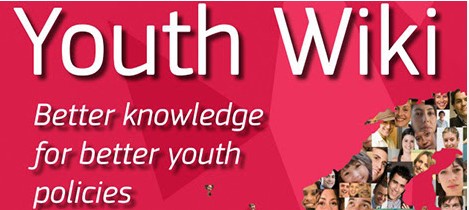In an era dominated by digital information, the Youth Wiki emerges as a groundbreaking platform that sheds light on the intricacies of European countries’ youth policies. Developed to empower young individuals with knowledge and insights, Youth Wiki is a digital compass navigating the complex landscape of European youth initiatives and policies. Let’s embark on a journey to understand the significance of this platform and how it acts as a catalyst for informed decision-making and active youth participation.

Understanding Youth Wiki:
Youth Wiki is an online repository that serves as a comprehensive database of information on the youth policies of European countries. Spearheaded by experts and policymakers, the platform aims to provide a centralized and accessible source for understanding the diverse approaches taken by European nations in addressing the needs and aspirations of their youth populations.
Key Features:
- Comprehensive Policy Insights: Youth Wiki offers an in-depth look into the youth policies of individual European countries. From education and employment to social engagement and cultural initiatives, the platform provides a comprehensive overview of the strategies implemented to support and empower young people.
- Comparative Analysis: One of the distinctive features of Youth Wiki is its ability to facilitate comparative analysis. Users can explore and compare youth policies across different European countries, identifying best practices and innovative approaches. This fosters a collaborative environment where nations can learn from each other’s successes and challenges.
- User-Friendly Interface: Recognizing the diverse needs of its audience, Youth Wiki boasts a user-friendly interface. Navigating through the platform is intuitive, ensuring that policymakers, researchers, and, most importantly, young individuals can access relevant information effortlessly.
- Regular Updates: Youth policies are dynamic and responsive to the evolving needs of youth populations. Youth Wiki keeps pace with these changes by providing regular updates on policy developments. This ensures that users have access to the latest information, empowering them to make informed decisions.
Benefits for Stakeholders:
- Policymakers: Youth Wiki serves as a valuable resource for policymakers, offering insights into successful youth policies and strategies. This knowledge can inform the development and refinement of policies, leading to more effective measures that address the real needs of young people.
- Researchers and Academia: For researchers and academics, Youth Wiki provides a rich source of data for studies on youth development. The platform’s comparative approach enables nuanced analyses, contributing to a deeper understanding of the factors influencing successful youth policies.
- Young Individuals: Youth Wiki empowers young individuals by giving them a platform to understand and engage with the policies that directly impact their lives. Access to information on education, employment opportunities, and social initiatives enables youth to make informed decisions about their futures.
Conclusion:
Youth Wiki emerges as a beacon of transparency and collaboration in the realm of European youth policies. By providing a centralized repository of information, the platform catalyzes positive change by fostering collaboration, informed decision-making, and active youth engagement. As we navigate the future, Youth Wiki stands as a testament to the power of knowledge in shaping policies that truly serve the needs and aspirations of Europe’s dynamic and diverse youth population.